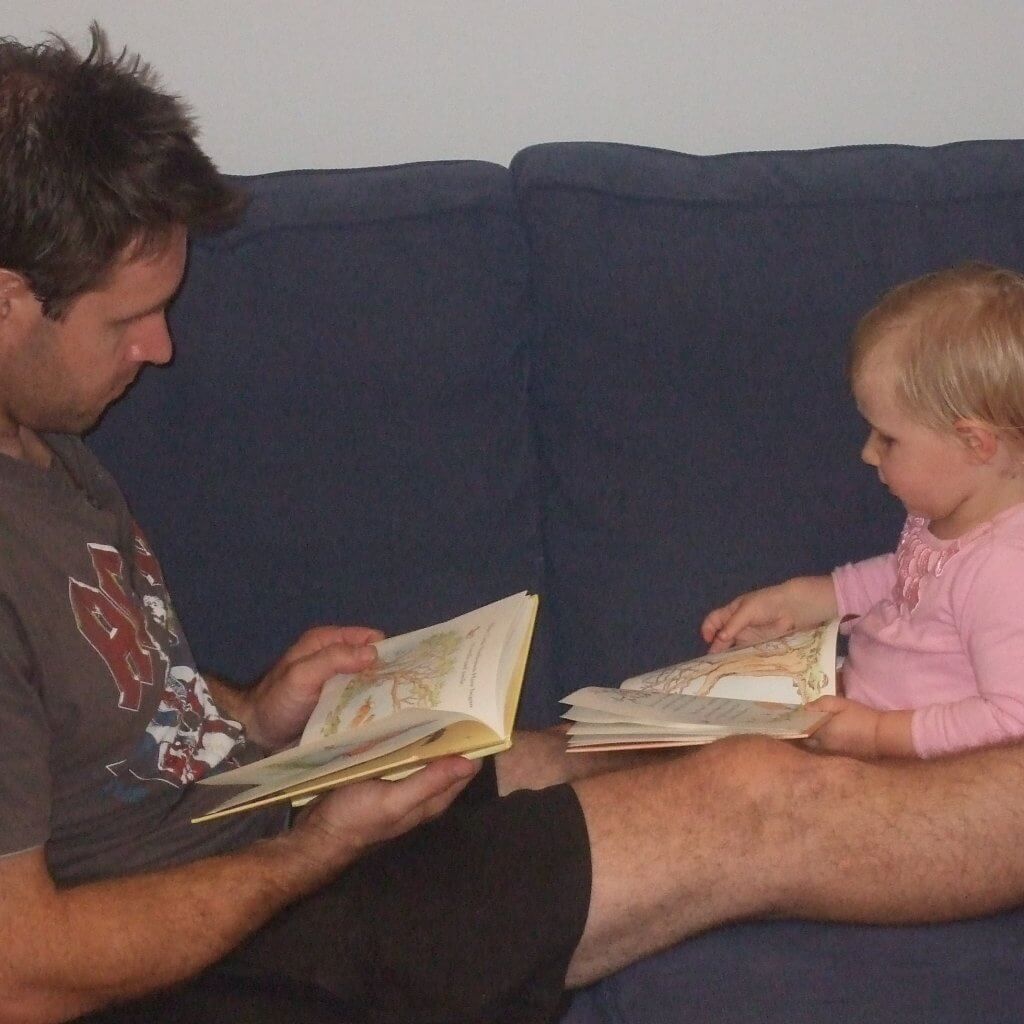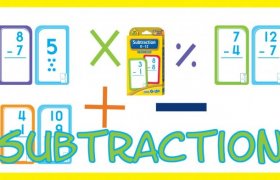A Few Tips to Encourage Your Kid to Read Regularly

We all know that reading is good for you no matter how old you are, and given the multitude of benefits, it makes total sense that we’d like to see our kids read regularly. Not only we would like to see our kids’ noses in books, but we’d like to see them engrossed and engaged when they read. Even though it’s a dream for many parents to have a child who’s a voracious reader, there are many children who just don’t seem that interested in reading. You may be wondering how you can get your kid to read consistently and how it is that you can actually get her to enjoy reading. It may seem tough but the reality of it is, it really isn’t that hard to encourage your child to read. There are tons of ways you can get your child into reading, and you can do so without forcing her. You’re going to have to make sure you start the process early on in her life, but there’s so much you can to do to encourage your kid to read in a way that’s easy for you and fun for her.
Read With Your Kids

Many parents read stories to their little ones at bedtime—and this is certainly a great place to start—but eventually you’re going to want to do more than just read to her or at her. Maybe one night before bedtime you could ask her to join you in reading the book. It may seem like a bad idea to you at first because you’d rather get her to bed than work on getting her to become a book worm, but reading together is incredibly integral to getting your child to enjoy a good book.
You can just ask her to read a couple of words here and there, or have her tackle a page or two while you take care of the rest. You don’t have to put her on the spot, you can just gently prompt her and see if she’s interested. Chances are, if you just ask, she’ll be up for the challenge. Encourage her while you read together; smile and laugh; show her that reading is fun. If she understands that you enjoy reading and that the two of you are having a good time, she’s going to have a positive association with reading.
And of course, you don’t have to limit your reading time to just before lights out. If she has a good time when reading at bedtime, why wouldn’t she enjoy it during the day? You don’t have to spend all afternoon reading with her—and in all honesty, given the attention span of child she probably won’t want to—but just spending even 15-30 minutes out of the day reading together isn’t going to hurt.
Read Daily

Your child isn’t going to develop an interest in reading if you don’t read consistently. It’s important that reading becomes a part of her daily life. Just make reading a part of you and your child’s routine so you make sure that she maintains her interest. If she isn’t consistently exposed, then she won’t even be given the chance to develop any sort of affinity for reading.
Aside from frequent reading, you might also want to try making regular trips to the library. It’s something for and your kid to do together, and there will be tons of books for her to choose from.
Let Your Children Choose What They Read

Often times, if a kid doesn’t enjoy reading, it’s because she feels she has little choice in the matter. This isn’t necessarily a choice that’s related to whether she even reads or not. The choice here isn’t about to read or not read, but it’s about letting your child choose the book herself.
You don’t want to assign her a book; if she’s going to read you have to make sure its material that interests her. Saying to her “You’re going to read right now and this is what you’ll read” isn’t exactly a form of encouragement. Let her know that she has some autonomy in regards to what she reads; this way, she’ll understand that reading can actually be an empowering experience.
Find Out What Interests Your child

If your kid is going to choose a book herself, you at least have to give her options that interest her. How do you know what interests your kid? You ask. Once you know what makes your kid tick, you’ll have a good starting point for getting her to enjoy reading. If what your kid reads just makes her bored out of her mind, she’ll have no reason to want to even pick up a book.
Show Them You are Interested

If you find that your kid is interested in a certain type of book, topic, subject, or author, let her know that you think that her interests are in fact interesting. You don’t want to discourage her from reading by letting her think that what she likes isn’t worth reading about. Writing off her interests is only going to stifle her confidence, and she won’t want to do something she feels incapable of doing.
Scatter Your Home with Reading Materials

You want to make sure that your child actually has consistent exposure to books. If books only stay in one room of the house, your kid won’t be able to turn to a book to stimulate her at just any given time. Make sure you have some sort of reading material in every room; give her the option to read as often as you can.
This is especially easy to do once you understand your child’s interests. Whatever she’s into, make sure she can read about it anytime she wants. If she has access to what interests her, she’s going to stay interested—she’ll have consistent reminders of, and consistent contact with what it is that she enjoys. Also, when books are around for her to pick up and look at independently, you won’t be forcing her to read, and forcing is in no way the same as encouraging. The best part is you don’t even have to do anything, she’ll just gravitate towards reading the books on her own.
Start a Discussion

Having a discussion with your child about what she reads is extremely important if you want her to have a genuine interest in reading. Discussing the material will allow your kid to understand that reading isn’t just being able to properly pronounce words on a page. When you discuss with your child what it is she reads, it makes it so that she has to think a little more deeply about the content of the story.
A great way to start is just to ask her what the story is about. If you have her explain the plot, she’ll be learning the proper comprehension skills needed to read effectively. Once your kid has a clear idea of what’s going on in the story, ask her how the content is relevant to her own life. If she sees that the experiences of characters in a book are similar to her own experiences, she’s more likely to understand the events and characters on a more deeply psychological level. She’ll think to herself “Oh, I’ve felt that way, I understand what this character is going through.”
Your child will make the connection that being able to read is about being able to understand the world at large. When you start a discussion, your child will be put into the position where she has to reflect on her own life and her own experiences. In addition to discovering that reading enables her to learn about the world at large and how she’s a part of this world through seeing her own experiences mirrored in books, she’ll gain a deeper and more complex understanding of herself.
Understand Metaphor and Symbolism

This one can be seen as an extension to having a simple discussion. Explaining to your child the way metaphor and symbolism works within stories may seem a little daunting at first, but your kid won’t be nearly as confused as you might think. It’s not going to be terribly effective for a child of 3 of 4, but once your kid reaches the 3rd or 4th grade, she’s going to be able to grasp the concept if you just explain it to her clearly and make use of the right material.
You’ll have to explain to your kid that stories are about more than just the plot. All stories mean more than the words on the page; stories use the plot to teach life lessons and to shed light on the way we understand the world around us, or exactly what goes on within our world. No matter the reading level of the material, stories are always about more than simply the stories themselves. Showing your kid that stories are about what they mean and not only what happens, is also a great way to allow your child to relate to the material.
Let’s say you and your kid are reading Judy Blume’s coming-of-age classic Tales of a Fourth Grade Nothing. The main character—Peter—is 9 years old and has to deal with the crazy antics of his baby brother Fudge. Right away, you have an instance of a kid who has to grapple with the fact—and the difficulties the may arise —with having a sibling. You can say to your child, “You see, Peter sometimes finds having a younger brother annoying, and he doesn’t always get along with his brother. Have you ever felt that way before about your siblings?”
Most likely, if your child has a sibling, she’s going to be able to relate to Peter. Not only that, but your child is going to understand that the story is not just about a kid who has to deal with his sibling; your child will understand that the story is about dealing with siblings in general. Tales of a Fourth Grade Nothing uses the story of familial conflicts as a metaphor or symbol to talk about what it’s like to have a sibling, what it’s like to be a part of a family, and what accepting your family really means.
One of the best (if not the best) books to teach your kid about how stories represent something greater than the stories themselves, is The Lion, the Witch, and the Wardrobe by C.S. Lewis. The religious symbolism in the book is incredibly clear. Even though the religious symbolism in the story is obvious (the book is about Christianity, and certain characters represent different Christian figures and what happens to these figures), this doesn’t even mean you have to teach your kid about religion or instill any sort of belief you may or may not have by any means; you can explain the story more simply than in just a religious context. You can say “See, Aslan the lion represents what many see as good, the White Witch represents what many would deem to be bad or evil. Do you understand? This story is about morals, greater goods and greater evils.” Your kid is going to get it, I promise.
Showing your kid that stories aren’t about just what happens but also what they mean is an excellent way to get your kid to relate to any story, and it’s going to be so useful for her understanding of the more difficult reading she’ll encounter in late middle school, high school, and college. It’s an entirely new way to engage your child in reading, and it’s guaranteed to give her the necessary skills she’ll need to be an independent and critical thinker.
Watch the Film Version of the Book

So, you’ve read The Lion, the Witch, and the Wardrobe or James and the Giant Peach, or Harry Potter with your kid. These are great books that also happen to be great films. Once you and your child read a book—and there happens to be a film adaptation—go ahead and watch the film with your child. You and your kid can discuss any similarities or differences, or you can see which version she likes better and why. It’s an excellent way to gain a deeper understanding of the material, and she’ll also develop better comprehension skills. Plus, watching movies with your kid is fun and you get another way to bond with your kid in addition to reading together.
Challenge Them

If your child wants to read a book and you say to her, “No, you’re not reading that. There’s no way you could possibly understand it,” she’s going to be turned off from reading. You don’t want your kid to think that she’s incapable of doing anything. If she feels she can’t read, she’s not going to. If your kid finds the book too difficult, she’ll realize it on her own. She’ll move on to something a little easier if she’s having a tough time with a certain book, and it’s very likely she’ll just come back to the original book later.
Hand Your Kid a Book Instead of a Smartphone

Maybe your waiting at the doctor’s office and your kid gets bored while in the waiting room. When you think of what to do to entertain your child, your first impulse might be to just hand her your smartphone and let her play some games. It’s a pretty easy option, but it’s not the only option.
Next time she’s bored try handing her a book instead of an electronic gadget. She’ll associate books with entertainment, and getting her to read for entertainment purposes is pretty much the best way to get her to enjoy reading to begin with.
Go Beyond the Realm of Books

Getting your kid to enjoy reading doesn’t mean she has to strictly read books or works of fiction. Sure, you want her to enjoy reading books, but there’s tons of other reading material to keep her interested in reading: think magazines, comic books, restaurant menus, and even street signs.
You can leave magazines and comic books around your home, and you can ask your kid to read the food options on a menu. When driving around, ask her if she can read the street signs and ask her if she knows what they mean. If your kid can read the word ‘stop’, and see that you’re supposed to come to a halt, she’s going to have a better idea of what the word ‘stop’ means.
We have to read everywhere we go. When you encourage your child to read all that surrounds us while you’re out and about, she’s going to understand that reading is important for her to understand all the activity that happens around her.
Take Consolation in Reading

If you’re kid is having a tough time with one of the many curveballs life throws at us, let her know that reading a book might help her better understand and cope with whatever it is she’s going through.
If your child is having difficulty getting along with a sibling, you can hand her a copy of Tales of a Fourth Grade Nothing. She can read the book and understand that she isn’t alone—that she’s not the only who feels the way she does. You can even just have her read a book that makes her happy if she’s feeling sad. Say to your kid “Hey, I know you’re feeling blue. Why don’t you read that book you like so much; it’ll make you feel better.” Giving your child a book during hard times can bring a smile to her face, and laughter is one of the best medicines out there.
Make Sure They See You Read

If you don’t read yourself, your kid most likely won’t develop any interest in reading. She’s not going to think reading is important if she sees that you never read. Children often mimic the behavior of their parents, so if you want her to read, you’ve got to set an example.
Give the Gift of Reading

When asking your kid what she wants for her birthday or for the holidays, suggest a book as a gift option. Remind her that she liked some particular book, and that she might like another one that’s similar. If she likes a book that’s part of a series (tons of children’s books are part of a series), maybe you could suggest that she might want another book in the series as a gift.
This will guarantee that your kid looks forward to reading. She’ll be so excited that a new book is coming her way during the holidays or come birthday time.
Don’t Force It

If you make it mandatory for your child to read or you tell her she has to, she’s going to be less likely to want to do it. This doesn’t mean you have to give up on the idea altogether, but if you make reading a chore she’s probably not going to gravitate towards reading when she’s looking for a way to enjoy herself.
There’s just such a large amount of approaches to encourage your child to read. If you want her to be interested right from the get-go, you’ll have to immerse her in reading when she’s pretty young. If she’s already in elementary school and she’s not too crazy about reading, try the method of showing her she can relate to the stories. You’re bound to find one way or another to get your child to connect with a story and get her on the path towards enjoying a good book.







